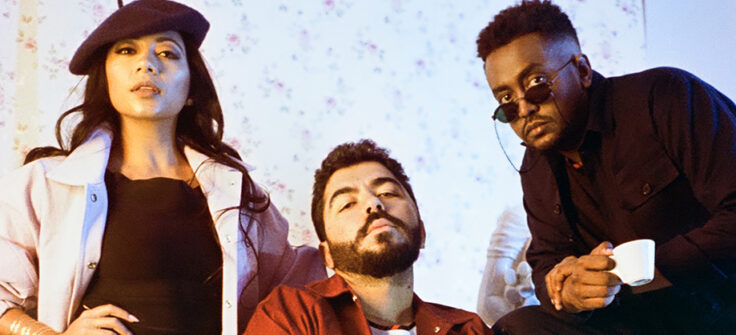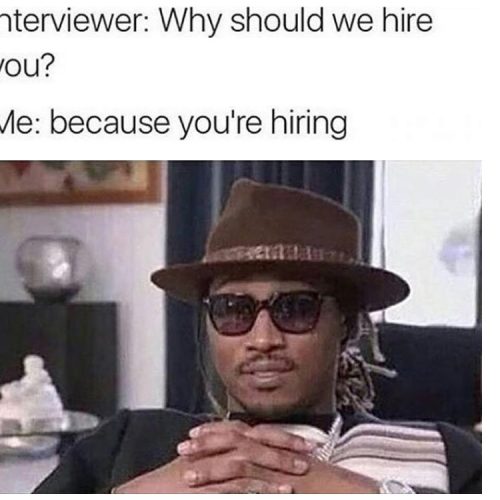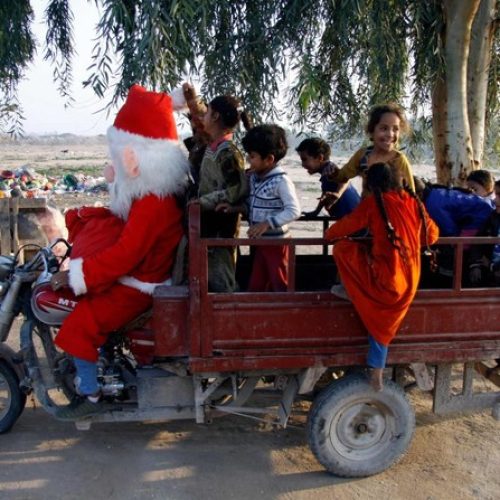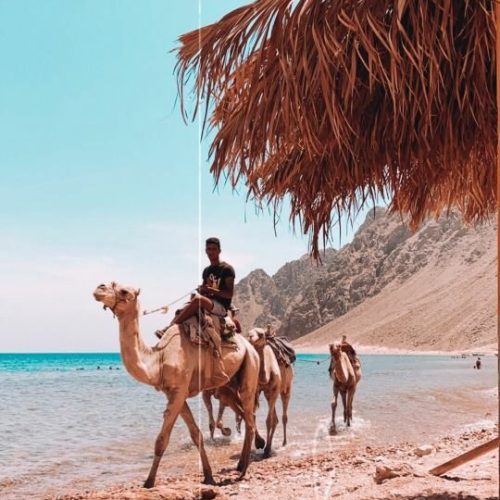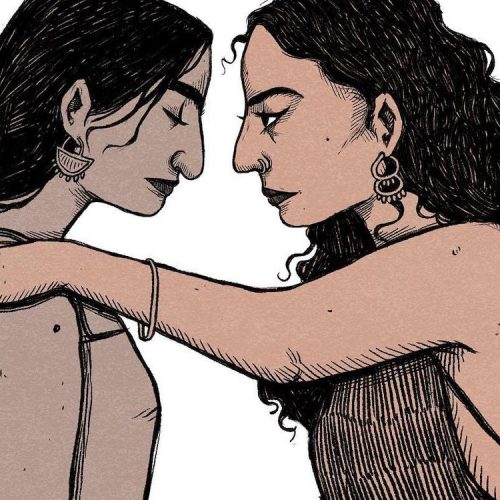Being the child of immigrant parents comes with a heavy identity crisis-laden predisposition. It’s a card that I’ve been dealt personally—and so have many of my friends. In a way, our on-going identity crisis serves as a common ground, and a reason why we all sort of gravitated towards each other.
Such is the case for Omar Tom, Reem Hameed, and Mohamed Akkaoui—the trio behind Dukkan Show—one of the Middle East’s few cultural podcasts.
Omar Tom—OT—is Sudanese, grew up in Dubai, had a short stint in the US, and is now back in the UAE. Mohamad is Lebanese by origin, but he was born and spent most of his life in Abu Dhabi, and later Dubai. Reem’s background is perhaps the most complex—her father is Iraqi, and her mother is Filipino. She spent her childhood between Iraq and the Philippines, and moved to Canada she was 16—and today, she lives in Dubai.
Growing up in such complex contexts, identity-related issues are almost inevitable. But overtime, their identities have been refined. The trio classify themselves as ‘third culture kids’—a term developed in the 90s following academic research on American military children and the consequences of growing up outside of their parents ‘passport countries’ during their developmental years.
The friends, and co-hosts eventually adopted a new name for themselves: neo-bedouins. “Neo being a conceptual word for new, and bedouin, in the sense of nomad, a traveller—but also, it’s a reclamation of the word, because ‘bedouin’ tends to have a negative connotation. It’s a word that’s used to describe people as ‘backwards’ in a way,” says OT.
But irrespective of the label, they’ve become innately connected in their sense of displacement. But while my third culture friends and I limit our discussions to a private WhatsApp group, the self-proclaimed neo-bedouins opted for a much more open format.
The Dukkan Show grew out of the idea of chasing ‘home’—whatever that may be. “It’s sort of like a home for third culture kids, for anyone trying to figure out where to belong,” says Reem. “If you don’t fit it anywhere, you’ll fit in here. It’s a community, a place of love, a place of connectivity”
OT got into the radio business in 2010, and upon his move to the US around the same time, he was introduced to the concept of podcasts and got the idea to start his own show. He returned to Dubai 2015 and created the Dukkan Show.
“By trade I’m a creative strategist, so right off the bat I wanted to make sure that anything I did had a deeper narrative, I wanted it to have a purpose. So, before I knew the name of the show or anything I knew the meaning behind it” he added.
The show boasts over 117 episodes covering everything from entrepreneurship to single mom-hood, to hip-hop and the internet. The podcast is exclusively in English. And purposefully so. At the end of the day, if there ever was a physical land of ‘third culture kids’, English would be its official language. But aside from this, an underpinning ethos for the trio is to present the Middle East to the rest of world, and so they conclusively decided speaking in English was the way to go.
“At the beginning we just invited friends and people we knew—and it was organic, we would just be like ok cool, you like hip hop? Let’s talk” We just wanted to talk about whatever subject.” Akkaoui says of the show, which evokes the feeling of sitting in a room amongst friends. The conversation is open, the dialogue is free-for-all, and everyone from the hosts to the guests have something informative to contribute.
Recently the trio has been putting some focus on a few extended projects outside of their usual scope. When Dolce & Gabbana’s controversial ‘Satwa’ campaign was released a few months ago, a conversation surrounding cultural appropriation took place across the region, so the trio organized a panel and brought together some speakers to healthily discuss and dissect the issue.
Based on the reactive success of the panel, the trio plans to expand the show beyond its podcast format and turn panels into an extension of the Dukkan platform. “There’s kind of a selfish motivation behind this.” Reem says, “We always look for new ways to learn more.
“The whole thing has kind of been a therapy session, we’ve all learned so much from Dukkan” adds OT.
But whatever their motivation is, one thing for sure, Dukkan has explored culture in the Middle East in a way few other platforms have—and we’re looking forward to whatever they have in store.





